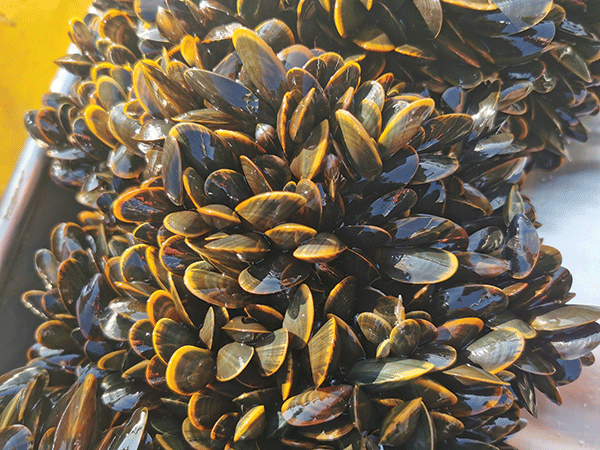Brexit has left small businesses reeling as new trade rules mean exports to Europe have ceased in some sectors, while others face thousands in new weekly paperwork costs.
It comes amid growing long-term fears that small sustainable businesses are unable to shoulder the burden of the new trading regime, leaving the UK market open to dominance by global brands.
Offshore Shellfish, in Devon, which produces organically certified mussels primarily for export, has had no income since the start of the year, after it says Defra failed to understand a technicality which rules that no third country can export live shellfish raised in Grade B waters to the EU.
Despite assurances that this would be covered in a deal, it has transpired not to be the case and the company is now unable to export. It sends 95 per cent of its shellfish to the continent, where demand far outweighs Britain’s, and along with other farms, is preparing to sue the government for compensation for loss of income.
“The stress is enormous, and we remain unsure of the outcome, but we are prepared to take the UK government to court for mishandling the shellfish issue during Brexit negotiations, and for misleading us for the past two years,” said managing director, John Holmyard.

Owner of sustainable fish supplier Sole of Discretion, Caroline Bennett, has faced failed or delayed shipments since 1 January, and “any hope of profit lost”. “The crux of the problem arises from being small-scale,” she said.
“The volumes we export are insufficient to commission a full container, instead relying on a haulage company to amalgamate orders. If there is a single mistake on any of the documents submitted by the various companies, the entire shipment is rejected. The reality is that this new trading regime is likely to kill off many small-scale food producers’ ability to import and export with the EU, leaving consumers in the UK with access to only the large global brands.”
Both Holmroyd, who has been in the shellfish industry for 33 years, and Bennett, who exports 25 per cent of her British-caught fish to Belgium, stressed that it is not possible to simply divert produce to the British market.
The issue of sustainable seafood has risen up the agenda thanks to the recent Seaspiracy film on Netflix, but Holmroyd said: “Consumers in northern France and Belgium have always been much greater consumers of mussels than anyone else.
“We’re very happy to sell stuff in this country. We’d love people to eat ten times as much, because it’s good for you and does the environment lots of good things. People don’t want to buy them in this country and I can’t make them.”
Importing from small organic growers on the continent, veg box company Riverford is now incurring around £5,500 in weekly costs from additional paperwork. “There’s the financial burden, but it’s the addition of new processes, the unknown, lack of support and ultimately the stress of it all,” said Riverford’s head of procurement, Dale Robinson, who said he’s “surprised” prices haven’t gone up in supermarkets yet.
“Resourcing to complete what they require simply isn’t there. When I tried to register us so we can receive some products, I was told by an officer in Defra ‘don’t hold your breath, I’ve got hundreds of these to register and don’t have the time’.”
Founder of Riverford, Guy Singh-Watson, said the situation raises concerns about the types of business relationships that will prosper in the future. “Too often business, in the UK and the US, is perceived as making short-term deals rather than building sustainable, trusting, long-term relationships,” he said.
“Trade flourishes on uncertainty and the volatile markets that come with it; most of the businesses that deliver innovation, sustainable wealth (and environmental solutions in particular) are crippled by it.”
Holmyard, whose business employs 16 people, said Defra insists it is the EU that has changed the rules. “We knew damn well that mussels from Grade B waters could not be exported into Europe by third country,” he said.
“The simple story is it’s a misunderstanding or carelessness on Defra’s part that has led us into this position. Unless they change something, we’re going out of business.”
This story was initially published in issue 6 of Wicked Leeks magazine. You can read the full magazine for free on Issuu by clicking here.















0 Comments